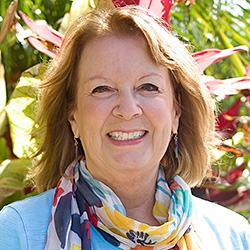

NVC Resources on Conflict
-
We only have this decade to make radical changes to avert crossing over into an unlivable Earth. What's essential is a critical mass of people with capacity to respond to many enormous, daunting social-environmental challenges. This means on a wider scale, responding to conflict, fear, hate, injustice and violence with the ability to see our commonality underlying our differences. And to feel part of a larger whole so we can birth natural caring, togetherness, and cooperation.
-
When Dian works with managers, they often ask how they can manage others more effectively. She almost always asks them: how are you managing yourself?
This question applies to all aspects of life, both at work and at home. How are you: 1) gaining clarity around your needs; 2) managing your internal reactions; and 3) clarifying your requests before you open your mouth (or judge) others? This is why self-empathy – which Dian calls “self-management,” now a buzzword in business – is central to the practice of Nonviolent Communication.
Yet self-empathy is not always easy, especially if events in your life stimulate old, “fossilized” needs. These “fossilized” needs are often precognitive and connected to trauma, and as a result, “live” in your muscle memory. In order to fully release this “stuck” energy, it is necessary to engage your felt-sense while learning to empathize with your body and deeply connect with your younger parts.
Dian calls this process Somatic Self-Empathy (SEE).
-
Trainer Tip: Mary explains why success isn't dependent upon another person's pain, by reaching for consensus instead of self-sacrifice.
-
Empathy is a form of attunement. Empathy is giving your compassionate curiosity by guessing another’s feelings and needs. Consider how you live or relate to each of these 12 essential aspects of empathy. Some of them mention how we can offer empathy without abandoning ourselves, how empathy isn't always the best response, and how "Empathy can be offered when you disagree with another’s opinion, memory, or perspective."
-
NVC trainer Sarah Peyton explores the process of repairing relationships through the lens of Nonviolent Communication. She emphasizes the importance of self-connection and empathy—both for ourselves and others—when addressing moments of hurt or disconnection.
-
Welcome to Part Two of our 3 part Embodied NVC Life Hack series. Last time we looked at rewiring your brain to navigate our primitive mind and sometimes default reactions such as fight, flight or freeze when faced with conflict. In this episode, we're going beyond self-empathy and looking at ways we can empathize with the other person.
-
Empathy creates space for healing and clarity, transforming how care and understanding unfold.
-
Learn how Nonviolent Communication (NVC) can improve the quality of your personal and professional relationships, one interaction at a time.
-
When supporting someone with less privilege, first check with them how you can support. If you're reacting more strongly to their undesirable experience than they are, this then shifts the dynamic so that they're setting aside what they want to attend to your feelings and needs - this may become work that they didn't sign up for. Read on for what to do instead to support more equity.

Quick Links
Subscription Preferences
Stay In Touch!
Looking for ways to keep up with NVC Academy news, get special offers, free resources, or words of inspiration? Here are five ways to stay engaged:









